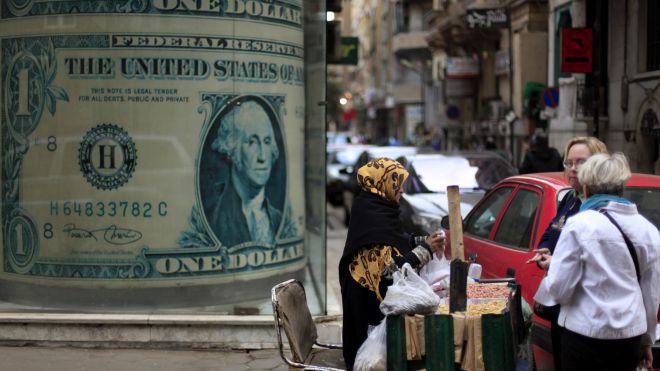
The vast majority of economic literature acknowledges the effects of uncertainty on economic activity, suggesting that it could play an important role in driving business cycles. This finding is quite intuitive. In times of uncertainty, investment and employment decisions are delayed because reversing these decisions is costly and leads to the contraction of the economy. Uncertainty also has a depressing effect on the economy through its negative effect on credit ratings and, consequently, plays an upwards effect on the cost of finance.
While uncertainty is sometimes unavoidable, particularly when provoked by an external crisis, its negative effects on growth are worse when they result from a policy response. Throughout all the events Egypt has experienced since the January 2011 revolution, fiscal policy trumps all other sources of policy-related uncertainty. Not only because fiscal policy during the transition has been very erratic and ad hoc, but also because decisions related to public spending and revenues (future taxes, spending levels, regulations, health-care and pensions reforms etc.) have a significant impact on Egyptians’ daily lives, by way of their impact on prices and cost of living.
In early December 2012, President Mohamed Morsi announced amendments to the country’s income and property tax laws, as well as increases in sales tax on a wide range of consumer goods and services. Hours later, he suspended the changes as the country prepared for a referendum on the contentious draft constitution. These measures also came shortly after the government implemented a cut in high octane fuel subsidies as part of its ambitious plan to cut energy subsidies in the 2012/2013 budget to 70 billion EGP (approximately $11.7 billion), down from the current 115 billion EGP ($19.2 billion). The announced measures were part of the government’s plan to reduce public deficit, while public opinion and observers associated the measures with requirements to secure a $4.8bn loan from the International Monetary Fund (IMF).
While an increase in indirect taxes is not the best way to increase public revenues because of its large and widespread effect on consumption and aggregate demand, the idea of a tighter fiscal policy is not necessarily a bad one, particularly if a temporarily weaker growth is the price one must pay to get public finances on a sustainable track. This price is simply a natural result of decades during which the country was living beyond its means and damaging policies were adopted in return for the population’s silence. The real harm comes from the isolation of decisions from the general economic and political context, and from the uncertainty they create. Deterrents to hiring and investing brought on by the prevailing uncertainty are not the result of fiscal policy per se, but by the reckless manner in which Egypt’s leaders adopt these policies.
There is a lack of vision when it comes to how Egypt will recover from its current economic crisis. While the effects of fiscal policy decisions are clear, introducing monetary policy in the economic picture, which determines the volume and cost (interest rate) of money supply and credit in an economy, complicates matters further, because of the close linkages between monetary and fiscal policies. For instance, if budget deficits persist, they will typically be financed by credits, either from abroad or from internal sources comprising individuals, companies, commercial banks or the central bank.
In all cases, the additional money spent by the government (on investments or subsidies) leads to the expansion of money supply in the economy, whether it is the central bank that creates and injects more money in circulation, or it is the banking system that expands credit to the government. The process of money creation and credit expansion is in itself a major cause of inflation, and the growing domestic debt of the government prevents job creation by crowding out private investment. Ironically, what was supposed to help Egyptians (higher spending on wages and subsidies) turned out to be a major source of inflation and unemployment, two issues which are the forefront of Egyptian concerns.
Saving public finances is essential to near-term recovery and job growth, but it is only one step to restoring confidence and promoting development in Egypt. That is why now, more than ever, Egypt’s leaders need to communicate with the public and start implementing a comprehensive economic program to save the country from a deep economic, social and political crisis.
Hoda Youssef is an economic analyst at the European Bank for Reconstruction and Development (EBRD). She holds a Ph.D. in Economics from Sciences Po Paris School and has aquired experience through her work in both academic and policy making institutions (Princeton University, the World Bank, the European Commission, Cairo University, the Free University of Brussels (ULB) among others).
Photo: AP
Image: Egypt%20Pound.jpg
